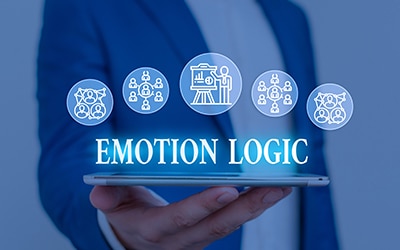“Your beliefs become your thoughts, your thoughts become your words, your words become your actions, your actions become your habits, your habits become your values, your values become your destiny.”
– Mahatma Gandhi, Political & Spiritual Leader
Paul Ekman, a world-renowned expert on emotions, offers three different ways to sense the feelings of another:
– Cognitive Empathy, understanding another’s emotional experience.
– Emotional Empathy, sharing another’s emotional experience or feeling along with another.
– Compassionate Empathy or Empathic Concern – understand and feel balanced, then moved to help.
When we talk about “empathy”, we mean feeling something in response to another’s emotional experience, this includes positive and negative experiences.
A balance of Cognitive and Emotional understanding is required for genuine empathic concern to occur. However, empathic concern is situational and relational, depending on the circumstance.
Upbringing, experiences, habits, culture, and other effective stimuli impact the balance, and empathic habits are instilled and reinforced over time.
Habitually high emotional empathic experiences can eventually lead to Cluster C types of personality disorders (anxious, fearful, avoidant… neurotic).
Habitually low emotional empathic experiences lead to cluster B types of personality disorders (dramatic, anti-social, borderline… narcissistic).
Empathy on the Internet
Increased connectivity is reinforcing unhealthy empathic habits tipping the scales to further extremes, resulting in relationship problems, personality disorders, morality, corruption, etc.
Our increased social exposure via media is largely responsible for more intense emotions, causing us to go in one of two directions:
– Either disconnecting from our natural empathy receptors, which leads to anti-social traits, or;
– Feeling too much and over-connecting with our empathy receptors, resulting in over-functioning, anxiety, and neuroticism.
Outrage porn refers to any type of media that is designed to invoke outrage for the purpose of getting traffic or attention online. It often utilizes confirmation bias which is the tendency to interpret new evidence as confirmation of one’s pre-existing beliefs or theories.
Religious and political biases are also fierce emotional traps that promote social division, hate, and discord.
A Narcissism Epidemic
The Association for Psychological Science by the University of Michigan sounded a warning bell when they published their findings that empathy levels are 40% lower in new college students (14,000 studied) compared to those prior to the year 2000, a trend that has been called a Narcissism Epidemic.
This has repercussions in schools, business, and families. We do tend to be very social beings and influence each other’s empathy in all our relationships.
Too much empathy often creates a less empathic colleague, partner or child, and vice versa. Overcompensation in the relationship causes the pendulum to swing at least as far in the other direction.
Informed individuals can choose to intervene in these trends and change their own empathic levels and work to balance their empathic experiences by practice and effort. Deliberate choices develop patterns, which form habits, which make up personalities.
In this blog, we explore these concepts further, and provide hypothetical scenarios to further illustrate the given points for individuals who have strayed too far in both directions of the Empathy Spectrum, and give some practical how-to’s for dealing with the various personality types, and working to balance your own empathy.
We will look at concepts designed to re-calibrate your empathy levels, and attempt to include advice such as:
– The power of perspective-taking
– Physical and mental separation (time out)
– Reconnecting with nature
– Exposure to positivity
– Laughing
– Approaching opposing views with curiosity
– Making the shift from “Knowing” to “Believing”
– Self-awareness training
– Mindfulness meditation
We’ll also look at the circumstantial situations that cause empathy fluctuations. For example, keeping calm in critical situations may be necessary to think clearly, but what if that ability to keep your cool runs too cold?
Too cold to care or feel empathy for those you are trying to assist?
Do we have to sacrifice our feelings, our empathy in order to stay calm?
Want to live mindfully?
Shift your habits and make lasting change with Happego’s pre-loaded primes that make balanced living and compassion easy.
Let’s forge ahead and explore topics such as these in an attempt to reveal a few insights regarding the state of your own empathy, the empathy of others, and of the world at large. See you in the next blog post..

